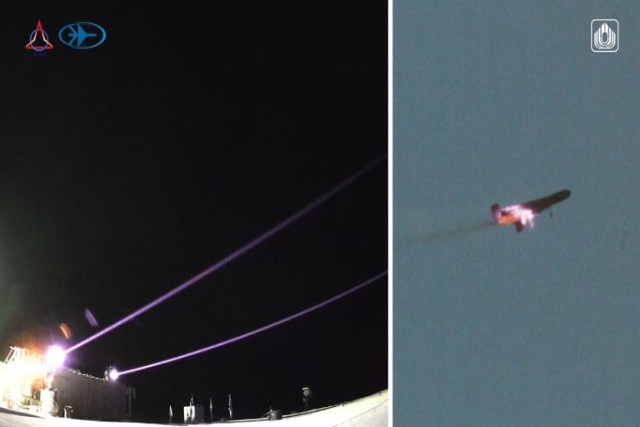U.S. to Remove $10M Bounty on Syrian HTS Leader, British Official Calls for Review of Group's 'Terrorist' Status: Reports
U.S. and U.K. reconsider stances on HTS leader Abu Mohammed al-Golani after Assad's fall. Debate intensifies over bounty removal and terrorist designation.

U.S. officials are considering removing the $10 million bounty on Abu Mohammed al-Golani, leader of Hay'at Tahrir al-Sham (HTS), after the group’s overthrow of Bashar al-Assad's government in Damascus.
The rebels' lightning blitz, which brought an end to Assad's iron-grip rule on Sunday, has led Washington to reconsider its stance toward the former al-Qaeda affiliate, a senior official briefed by the Americans told Middle East Eye. The official noted that the discussions had divided Biden administration officials.
Golani, who has been designated a terrorist by the U.S. since 2013, had the bounty imposed in 2018 when HTS was designated a terrorist organization by the Trump administration. Although HTS sought delisting for years while governing a part of northwest Syria, the group's recent offensive, which resulted in the collapse of Assad’s regime, has led to a shift in U.S. policy discussions. These talks, however, have divided officials in the Biden administration, with some criticizing the potential change in stance.
Golani, 42, who has a history of involvement in the Iraq insurgency and was previously associated with al-Qaeda and the Islamic State, celebrated his victory in a speech at the Umayyad Mosque in Damascus, declaring Syria free from "Iranian ambitions and sectarianism."
Meanwhile, Sir John Sawers, the former head of MI6, has called for a review of the U.K.'s classification of HTS as a terrorist organization, highlighting the group’s changing role in Syria. In an interview with Sky News, Sawers pointed to HTS’s shift under Golani's leadership, arguing that it has transformed from a terrorist group to a "liberation movement" in recent years. His comments come as the U.K. faces growing pressure to reassess its stance following the fall of Assad’s regime, which Prime Minister Sir Keir Starmer has described as "barbaric."
The U.K. government is now considering its position on HTS, with officials, including Deputy Prime Minister Angela Rayner, discussing plans for the evacuation of British nationals in Syria. Meanwhile, Shadow Foreign Secretary Dame Priti Patel has stressed the need to assess the current and potential security threat HTS poses, both to the U.K. and to the wider region. The Home Office has not confirmed whether it will review HTS's proscription status, though such a decision would involve input from key security agencies, including MI5 and the Joint Terrorism Analysis Centre.
Amnesty International has called for justice for victims of human rights abuses under Assad's regime and emphasized the need for accountability in Syria's ongoing conflict.
The debate over HTS reflects broader concerns about the future governance of Syria and the complex challenges of rebuilding the country after years of war.














